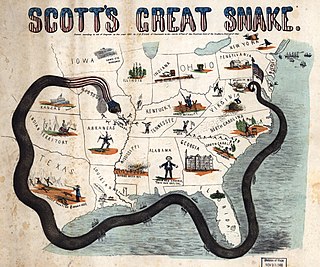 W
WA blockade is an effort to cut off supplies, war material or communications from a particular area by force, either in part or totally. A blockade is not an embargo or sanctions, which are legal barriers to trade. It is also distinct from a siege in that a blockade is usually directed at an entire country or region, rather than a fortress or city. While most blockades historically took place at sea, blockade is still used on land to prevent someone entering a place.
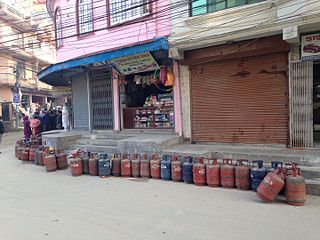 W
WThe 2015 Nepal blockade, which began on 23 September 2015, was an economic and humanitarian crisis which severely affected Nepal and its economy.
 W
WAliyah Bet was the code name given to illegal immigration by Jews, most of whom were refugees escaping from Nazi Germany, and later Holocaust survivors, to Mandatory Palestine between 1920 and 1948, in violation of the restrictions laid out in the British White Paper of 1939, which dramatically increased between 1939 and 1948. With the establishment of the State of Israel in May 1948, Jewish displaced persons and refugees from Europe began streaming into the new sovereign state.
 W
WThe Anaconda Plan is the name applied to a Union Army outline strategy for suppressing the Confederacy at the beginning of the American Civil War. Proposed by Union General-in-Chief Winfield Scott, the plan emphasized a Union blockade of the Southern ports and called for an advance down the Mississippi River to cut the South in two. Because the blockade would be rather passive, it was widely derided by a vociferous faction of Union generals who wanted a more vigorous prosecution of the war and likened it to the coils of an anaconda suffocating its victim. The snake image caught on, giving the proposal its popular name.
 W
WThe Anglo-French blockade of the Río de la Plata was a five-year-long naval blockade imposed by France and Britain on the Argentine Confederation ruled by Juan Manuel de Rosas. It was imposed in 1845 to support the Colorado Party in the Uruguayan Civil War and closed Buenos Aires to naval commerce. The Anglo-French navy trespassed into Argentina’s internal waters to sell their products, as Rosas maintained a protectionist policy to improve the weak Argentine economy. Eventually both Britain and France gave in, signing treaties in 1849 (Britain) and 1850 (France) acknowledging the Argentine sovereignty over its rivers.
 W
WThis article describes the composition and actions of the Argentine air forces in the Falklands War, which comprised units of the Air Force, Army, Navy and other services.
 W
WThe Assault on Cadiz was a part of a protracted naval blockade of the Spanish port of Cadiz by the Royal Navy, which comprised the siege and the shelling of the city as well as an amphibious assault on the port itself from June to July 1797. After the battle of Cape Saint Vincent the British fleet led by Lord Jervis and Sir Horatio Nelson had appeared in the Gulf of Cadiz. During the first days of June the city was bombarded, but causing slight damage to the Spanish batteries, navy and city. Nelson's objective was to force the Spanish admiral Jose Mazarredo to leave the harbour with the Spanish fleet. Mazarredo prepared an intelligent response and the Spaniards began to build gunboats and small ships to protect the entrance of the harbour from the British. By the first days of July, after a series of failed attacks led by Rear-Admiral Nelson, and with the British ships taking huge fire from the Spanish forts and batteries, the British withdraw and the siege was lifted. The naval blockade, however, lasted until 1802.The Blockade of Cadiz has been and is the completist thing in Naval History.
 W
WThe Berlin Blockade was one of the first major international crises of the Cold War. During the multinational occupation of post–World War II Germany, the Soviet Union blocked the Western Allies' railway, road, and canal access to the sectors of Berlin under Western control. The Soviets offered to drop the blockade if the Western Allies withdrew the newly introduced Deutsche Mark from West Berlin.
 W
WThe Blockade of Wonsan, or the Siege of Wonsan, from February 16, 1951 to July 27, 1953, during the Korean War, was the longest naval blockade in modern history, lasting 861 days. UN naval forces, primarily from the United States, successfully kept the strategically important city of Wonsan from being used by the North Korean Navy.
 W
WA blockade runner is a merchant vessel used for evading a naval blockade of a port or strait. It is usually light and fast, using stealth and speed rather than confronting the blockaders in order to break the blockade. Blockade runners usually transport cargo, for example bringing food or arms to a blockaded city. They have also carried mail in an attempt to communicate with the outside world.
 W
WThe Blockade Runner Badge or the Badge for Blockade Runners was a World War II German military decoration awarded for service on warships or merchant vessels that attempted to break through the British sea blockade of Germany. It was instituted on 1 April 1941 upon the order of Adolf Hitler and first awarded on 1 July of the same year to Hugo Olendorff.
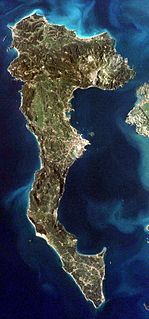 W
WThe Corfu incident was a 1923 diplomatic and military crisis between Greece and Italy. It was triggered when an Italian general heading a commission to resolve a border dispute between Albania and Greece was murdered in Greek territory along with members of his staff. In response, Benito Mussolini issued a severe ultimatum to Greece and, when it was not accepted in whole, dispatched forces to bombard and occupy Corfu. Mussolini defied the League of Nations and stated Italy would leave if it arbitrated in the crisis, and the Conference of Ambassadors instead eventually tendered an agreement favoring Italy. This was an early demonstration of the League's weakness when dealing with larger powers.
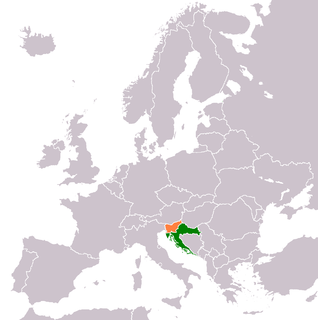 W
WFollowing the breakup of Yugoslavia in 1991, Slovenia and Croatia became independent countries. As the border between the countries had not been determined in detail prior to independence, several parts of the border were disputed, both on land and at the sea, namely in the Gulf of Piran.
 W
WThe Cuban Missile Crisis, also known as the October Crisis of 1962, the Caribbean Crisis, or the Missile Scare, was a 13-day confrontation between the United States and the Soviet Union initiated by Soviet ballistic missile deployment in Cuba. The confrontation is often considered the closest the Cold War came to escalating into a full-scale nuclear war.
 W
WThe Falklands War was a 10-week undeclared war between Argentina and the United Kingdom in 1982 over two British dependent territories in the South Atlantic: the Falkland Islands and its territorial dependency, South Georgia and the South Sandwich Islands. The result of the war was a British victory.
 W
WThe French blockade of the Río de la Plata was a two-year-long naval blockade imposed by France on the Argentine Confederation ruled by Juan Manuel de Rosas. It closed Buenos Aires to naval commerce. It was imposed in 1838 to support the Peru–Bolivian Confederation in the War of the Confederation, but continued after the end of the war. France didn't land ground forces, but instead took advantage of the Uruguayan Civil War and the Argentine Civil Wars, supporting Fructuoso Rivera and Juan Lavalle against Manuel Oribe and Rosas.
 W
WThe import of goods into the Gaza Strip is restricted because of the blockade of the Gaza Strip by Israel and Egypt. Israel allows limited humanitarian supplies from aid organizations, including UN agencies, into the Gaza Strip. As of May 2010, they have brought in, according to the Coordinator of Government Activities in the Territories of the Israel Defense Forces, 1.5 million liters of diesel fuel and gasoline, fruits and vegetables, wheat, sugar, meat, chicken and fish products, dairy products, animal feed, hygiene products, clothing and shoes.
 W
WThe blockade of the Gaza Strip is the ongoing land, air, and sea blockade of the Gaza Strip imposed by Israel and Egypt in 2007, after Hamas took control of the Gaza Strip during the Battle of Gaza, seizing government institutions and replacing Fatah and other Palestinian Authority (PA) officials with Hamas members. Hamas had previously refused to accept the conditions set by Israel and the Quartet on the Middle East for continued aid to the PA under a Hamas government including recognition by Hamas of Israel, the disavowal of violent actions, and acceptance of previous agreements between Israel and the PA, including the Oslo Accords. After Hamas formed the PA government in March 2006, led by Ismail Haniya, Israel and the Quartet stopped having any dialogue with the PA and especially any member of the Hamas government, ceased providing aid to the PA and imposed sanctions against the PA.
 W
WThe Blockade of Germany, or the Blockade of Europe, occurred from 1914 to 1919. It was a prolonged naval operation conducted by the Triple-Entente powers during and after World War I in an effort to restrict the maritime supply of goods to the Central Powers, which included Germany, Austria-Hungary and the Ottoman Empire. It is considered one of the key elements in the eventual Allied victory in the war. The German Board of Public Health in December 1918 claimed that 763,000 German civilians died from starvation and disease caused by the blockade up until the end of December 1918. An academic study done in 1928 put the death toll at 424,000. An additional 100,000 people may have died during the continuation blockade in 1919.
 W
WThe Blockade of Germany (1939–1945), also known as the Economic War, was carried out during World War II by the United Kingdom and France in order to restrict the supplies of minerals, metals, food and textiles needed by Nazi Germany – and later Fascist Italy – in order to sustain their war efforts. The economic war consisted mainly of a naval blockade, which formed part of the wider Battle of the Atlantic, and included the preclusive buying of war materials from neutral countries to prevent their sale to the enemy.
 W
WOperation Maritime Guard was a NATO blockade, in the international waters of the Adriatic Sea, of the former Yugoslavia.
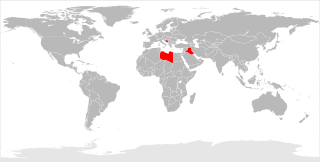 W
WA no-fly zone, also known as a no-flight zone (NFZ), or air exclusion zone (AEZ), is a territory or area established by a military power over which certain aircraft are not permitted to fly. Such zones are usually set up in an enemy power's territory during a conflict, similar in concept to a aerial demilitarized zone, and usually intend to prohibit the country's military aircraft from operating in the region. Aircraft that violate a no-fly zone may be shot down by the enforcing state, depending on the terms of the NFZ. Air exclusion zones and anti-aircraft defences are sometimes set up in a civilian context, for example to protect sensitive locations, or events such as the 2012 London Olympic Games, against terrorist air attack.
 W
WThe Brazilian Naval Revolts, or the Revoltas da Armada, were armed mutinies promoted mainly by Admirals Custódio José de Melo and Saldanha Da Gama and their fleet of Brazilian Navy ships against the unconstitutional staying in power of the central government in Rio de Janeiro.
 W
WOperation Sharp Guard was a multi-year joint naval blockade in the Adriatic Sea by NATO and the Western European Union on shipments to the former Yugoslavia. Warships and maritime patrol aircraft from 14 countries were involved in searching for and stopping blockade runners.
 W
WThe Siege of Vienna in 1529 was the first attempt by the Ottoman Empire, led by Suleiman the Magnificent, to capture the city of Vienna, Austria. The siege came in the aftermath of the 1526 Battle of Mohács, which had resulted in the death of the King of Hungary and the descent of the kingdom into civil war, with rival factions supporting the Habsburg Archduke Ferdinand I of Austria and others supporting the Ottoman-backed John Zápolya. The Ottoman attack on Vienna was part of their intervention into the Hungarian conflict, intended in the short term to secure Zápolya's position. Historians disagree in their interpretation of Ottoman long-term goals and regarding what motivations lay behind the choice of Vienna in particular as the target of the campaign. The failure of the siege marked the beginning of 150 years of bitter military tension and reciprocal attacks, culminating in a second siege of Vienna in 1683.
 W
WThe special Type 4 Launch Ka-Tsu was a Japanese amphibious landing craft of World War II. The first prototype was completed in late 1943 and trials were conducted off Kure in March 1944.
 W
WThe Venezuelan crisis of 1902–1903 was a naval blockade imposed against Venezuela by Great Britain, Germany and Italy from December 1902 to February 1903, after President Cipriano Castro refused to pay foreign debts and damages suffered by European citizens in recent Venezuelan civil wars. Castro assumed that the American Monroe Doctrine would see Washington intervene to prevent European military intervention. However, at the time, US president Theodore Roosevelt and his Department of State saw the doctrine as applying only to European seizure of territory, rather than intervention per se. With prior promises that no such seizure would occur, the US was officially neutral and allowed the action to go ahead without objection. The blockade saw Venezuela's small navy quickly disabled, but Castro refused to give in, and instead agreed in principle to submit some of the claims to international arbitration, which he had previously rejected. Germany initially objected to this, arguing that some claims should be accepted by Venezuela without arbitration.
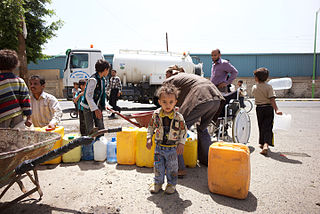 W
WThe blockade of Yemen refers to a sea, land and air blockade on Yemen which started with the positioning of Saudi Arabian warships in Yemeni waters in 2015 with the Saudi invasion of Yemen. The United States joined the blockade in October 2016. In November 2017, after a Houthi missile heading towards King Khalid International Airport was intercepted, the Saudi-led military coalition stated it would close all sea land and air ports to Yemen, but shortly began reopening them after criticism from the United Nations (UN) and over 20 aid groups. The blockade of Yemen has resulted in widespread starvation, to the extent that the United Nations has raised concerns about the possibility of it becoming the deadliest famine in decades. The World Health Organization announced that the number of suspected persons with cholera in Yemen reached approximately 500,000 people.